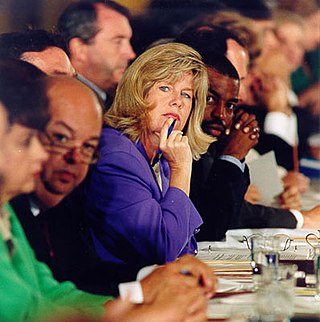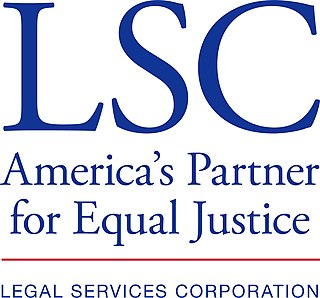
Frank Vincent Zappa was an American musician, composer, and bandleader. In a career spanning more than 30 years, Zappa composed rock, pop, jazz, jazz fusion, orchestral and musique concrète works; he also produced almost all of the 60-plus albums that he released with his band the Mothers of Invention and as a solo artist. His work is characterized by nonconformity, improvisation sound experimentation, musical virtuosity and satire of American culture. Zappa also directed feature-length films and music videos, and designed album covers. He is considered one of the most innovative and stylistically diverse musicians of his generation.

The Iran–Contra affair, often referred to as the Iran–Contra scandal, was a political scandal in the United States that occurred during the second term of the Reagan administration. Between 1981 and 1986, senior administration officials secretly facilitated the illegal sale of arms to Iran, which was subject to an arms embargo at the time. The administration hoped to use the proceeds of the arms sale to fund the Contras, an anti-Sandinista rebel group in Nicaragua. Under the Boland Amendment, further funding of the Contras by legislative appropriations was prohibited by Congress, but the Reagan administration figured out a loophole by secretively using non-appropriated funds instead.

Article Two of the United States Constitution establishes the executive branch of the federal government, which carries out and enforces federal laws. Article Two vests the power of the executive branch in the office of the president of the United States, lays out the procedures for electing and removing the president, and establishes the president's powers and responsibilities.

The Twenty-fifth Amendment to the United States Constitution deals with presidential succession and disability.

The Parents Music Resource Center (PMRC) was an American committee formed in 1985 with the stated goal of increasing parental control over the access of children to music deemed to have violent, drug-related, or sexual themes via labeling albums with Parental Advisory stickers. The committee was founded by four women known as the "Washington Wives"—a reference to their husbands' connections with government in the Washington, D.C. area. The women who founded the PMRC are Tipper Gore, wife of Senator and later Vice President Al Gore; Susan Baker, wife of Treasury Secretary James Baker; Pam Howar, wife of Washington realtor Raymond Howar; and Sally Nevius, wife of former Washington City Council Chairman John Nevius. The PMRC eventually grew to include 22 participants before shutting down in the mid-to-late 1990s.

We're Only in It for the Money is the third album by American rock band the Mothers of Invention, released on March 4, 1968, by Verve Records. As with the band's first two efforts, it is a concept album, and satirizes left- and right-wing politics, particularly the hippie subculture, as well as the Beatles' album Sgt. Pepper's Lonely Hearts Club Band. It was conceived as part of a project called No Commercial Potential, which produced three other albums: Lumpy Gravy, Cruising with Ruben & the Jets, and Uncle Meat.

Joe's Garage is a three-part rock opera released by American musician Frank Zappa in September and November 1979. Originally released as two separate albums on Zappa Records, the project was later remastered and reissued as a triple album box set, Joe's Garage, Acts I, II & III, in 1987. The story is told by a character identified as the "Central Scrutinizer" narrating the story of Joe, an average adolescent male, from Canoga Park, Los Angeles, who forms a garage rock band, has unsatisfying relationships with women, gives all of his money to a government-assisted and insincere religion, explores sexual activities with appliances, and is imprisoned. After being released from prison into a dystopian society in which music itself has been criminalized, he lapses into insanity.

Parental Advisory is a voluntary warning label placed on audio recordings in recognition of inappropriate references, such as violence, sexual content or profanity, with the intention of alerting parents of material potentially unsuitable for children. It was introduced by the Recording Industry Association of America (RIAA) in 1987 and adopted by the British Phonographic Industry (BPI) in 2011. The label was first affixed on physical 33 1/3 rpm records, compact discs and cassette tapes, and it has been included on digital listings offered by online music stores. In PAL-region territories, some video games featuring licensed music were affixed with the label in the late 1990s and early 2000s.

Them or Us is an album by American musician Frank Zappa, released in October 1984 by Barking Pumpkin Records.

Jazz from Hell is an instrumental album whose selections were all composed and recorded by American musician Frank Zappa. It was released on November 15, 1986, by Barking Pumpkin Records on vinyl and cassette, and in 1987 by Rykodisc on CD.

"Bonzo Goes to Bitburg" is a protest song by American punk rock band the Ramones. It was issued as a single in the UK by Beggars Banquet Records in mid-1985. The song is an emotionally charged commentary on the Bitburg controversy from earlier that year, in which U.S. president Ronald Reagan had paid a state visit to a German World War II cemetery and gave a speech where numerous Waffen-SS soldiers were buried. Lyrically, the song was a departure from the usual Ramones topics. While not commercially successful, it was critically well received.

Animal Boy is the ninth studio album by the American punk rock band Ramones, released through Sire Records on May 19, 1986. Due to conflicts within the group, the album features less of lead singer Joey Ramone, both in performing and writing, and less performing from guitarist Johnny Ramone. Bassist Dee Dee Ramone wrote and sang more on this album than on previous albums, and Richie Ramone became the first drummer to write songs for the band since Tommy Ramone, the band's original drummer. Richie also wrote for Too Tough To Die (1984). The album spawned four singles, all of which charted on the UK Singles Chart, as well as other charts. In addition to singles, the band promoted their album using a music video for "Something to Believe In", which parodied the contemporary benefit concerts Live Aid and Hands Across America.

The Legal Services Corporation (LSC) is a publicly funded, 501(c)(3) non-profit corporation established by the United States Congress. It seeks to ensure equal access to justice under the law for all Americans by providing funding for civil legal aid to those who otherwise would be unable to afford it. The LSC was created in 1974 with bipartisan congressional sponsorship and the support of the Nixon administration, and LSC is funded through the congressional appropriations process.

Zappa in New York is a double live album by Frank Zappa released on his own DiscReet Records label, distributed by Warner Bros. Records. It was recorded in December 1976 at a series of concerts at the Palladium in New York City.

Zappa Plays Zappa is an American tribute act led by Dweezil Zappa, the elder son of late American composer and musician Frank Zappa, devoted to performing the music of Frank Zappa.
The parents' rights movement is a civil rights movement whose members are primarily interested in issues affecting fathers, mothers and children related to family law, including child custody.
The Parental Rights Amendment to the United States Constitution is a proposed change to the United States Constitution. The amendment's advocates say that it will allow parents' rights to direct the upbringing of their children, protected from federal interference, and the United Nations Convention on the Rights of the Child. The Amendment was first proposed during the 110th Congress as House Joint Resolution 97 in July 2008, but no action was taken during that Congress. The Amendment has been described as a "wedge issue" and part of the culture wars.

The appearance of Ronald Reagan in music includes mentions and depictions of the actor-turned-politician in songs, albums, music videos, and band names, particularly during his two terms as President of the United States. Reagan first appeared on a few album covers during his time as a Hollywood actor, well before his political career. During the 1960s, folk, rock, and satirical musicians criticized Reagan in his early years as Governor of California for his red-baiting and attacking of the Berkeley-based Free Speech Movement. In the 1980s, songs critiquing Reagan became more widespread and numerous once he ascended to national office and involved himself in the renewal of the Cold War, the nuclear arms race, social conservatism, right-wing evangelicalism, and his economic policies in relation to low-income people. While references to Reagan during his presidency appear in pop music, his presence in song lyrics and on album covers is often associated with the hardcore punk counter-culture of the 1980s.

The Bitburg controversy concerned a ceremonial visit by Ronald Reagan, the incumbent President of the United States, to a German military cemetery in Bitburg, West Germany in May 1985. The visit was intended to commemorate the 40th anniversary of the end of World War II in Europe but aroused considerable criticism from Jewish communities within the United States and around the world when it became known that 49 of the 2,000 German soldiers buried at the site had been members of the Waffen-SS, the military arm of Nazi Germany's Schutzstaffel (SS). The entire SS had been judged to be a criminal organisation at the Nuremberg trials. Although not part of the original itinerary, as part of their own reconciliatory gesture, Reagan and West German Chancellor Helmut Kohl made an impromptu visit to the Bergen-Belsen concentration camp before visiting Bitburg, thus reducing the time Reagan had to spend at Kolmeshöhe Military Cemetery to only eight minutes.
"G-Spot Tornado" is a piece of programmed Synclavier DMS music written by American musician Frank Zappa, released in 1986 on his instrumental album Jazz from Hell.
















